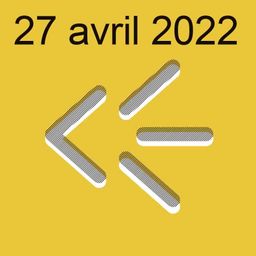Analyse des enjeux interactionnels de la formation professionnelle initiale pour la formation en FLE des apprenants migrants allophones
My Session Status
Analysis of the interactional issues of initial vocational training for french as a foreign language training for allophone migrant learners
Sabrina ROYER
Université de Lille & Université d’Artois
Cette présentation aura lieu en français.
Questions from the audience in English and in French are welcome.
The urgency of the professional integration of refugees has modified the engineering practices of foreign language course systems. The pedagogical engineering on specific purpose (FSP and FPL) are based on more complementarity between the professional trainer and the language teacher to create tailor-made teaching materials that take into account the basic skills for employment (Mangiante and Parpette, 2022). Language teachers are indeed interested in their course design in “targeting operational skills that must be mastered in order to exercise a profession” (Mourlhon-Dallies, 2019). In fact, they rely on the corpora of vocational training to teach learners how the specialized language allows them to build professional learning.
This communication proposal starts from the premise that the complexity of the specialized language in initial training is based on a panel of interactional resources used by teachers and learners for learning the profession. How can the interactional resources of initial training be used on a didactic level in professional French language courses?
Based on an ethnographic approach to interactions (Goffman, 1974; Filliettaz, 2019), we propose to identify the interactional issues present in the learning situations of initial training (Royer, 2019). The multimodal corpus presented is made up of about twenty professional situations taken from initial training in hygiene and cleanliness, a popular sector for the integration of migrant workers. It was recorded in a secondary institution in the Hauts-de-France region and represents around thirty hours of video recordings.
The conclusions of this research aim to bring out an analysis tool in the form of a map, intended for language teachers, so that they can identify the interactional resources put in place by the participants in the construction of professional learning. initial.
References
Filliettaz, L. (2019). La compétence interactionnelle : Un instrument de développement pour penser la formation des adultes. Education permanente, 220/221, 185‑194.
Goffman, I. (1974). Les Cadres de l’expérience (I. Joseph, M. Dartevelle, & P. Joseph, Trad.). Éditions de minuit.
Mangiante, J.-M., & Parpette, C. (2022, à paraître). État de la recherche en FOS et en FOU. Peter Lang.
Mourlhon-Dallies, F. (2019). Le Français sur Objectif Spécifique actuellement : Renouvellement notionnel et impact sur les pratiques de cours. Points Communs - Recherche en didactique des langues sur objectif(s) spécifique(s).
Royer, S. (2019). Les interactions dans l’apprentissage des actes professionnels en hygiène et propreté : De l’analyse aux propositions didactiques en FLP-FOS pour les travailleurs migrants [Thèse de doctorat]. Université d’Artois.

